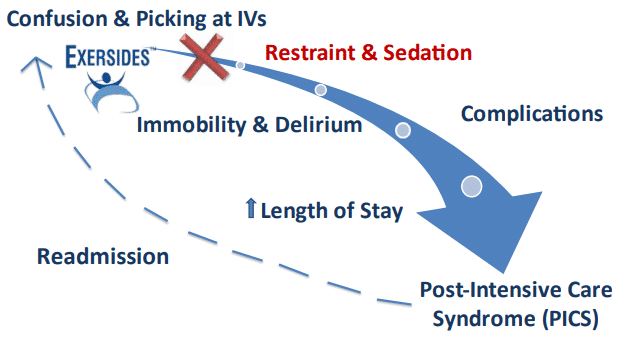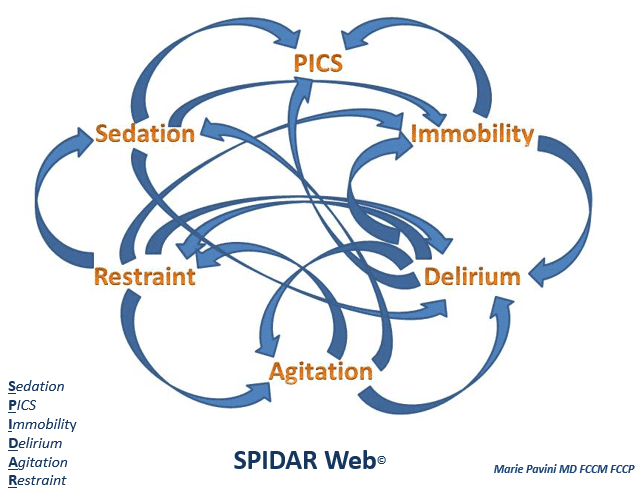Delirium is a common clinical syndrome in acute care, and correlated with adverse clinical outcomes.
Incidence of delirium is high when patients are restrained.
Restrictions on the use of restraint can reduce delirium.
To reduce delirium, nurses must assess the risk of physical restraint, minimize, and consider alternative measures.
Effects of Delirium
- Increased need for nursing home placement
- Increased need for overnight hospitalization
- Increased readmissions
- Reduced cognitive functioning
- Difficulty recovering from surgery
- Worsening medical conditions, or onset of new conditions including post-intensive care syndrome
- Higher risk of severe illness or death
Sedation reduction, restraint minimization and early mobilization are key factors that reduce delirium.
The Exersides Refraint is the only medical device that allows safe and easy titration of sedation, restraint and Refraint to comply with CMS ‘least restraint necessary’.
Refraint patients can be more cognitive, cooperative, and mobile to reduce complications and length of stay.
Caregivers are able to provide humane, compassionate care to their patients, improving not only patient outcomes but also worker satisfaction.



